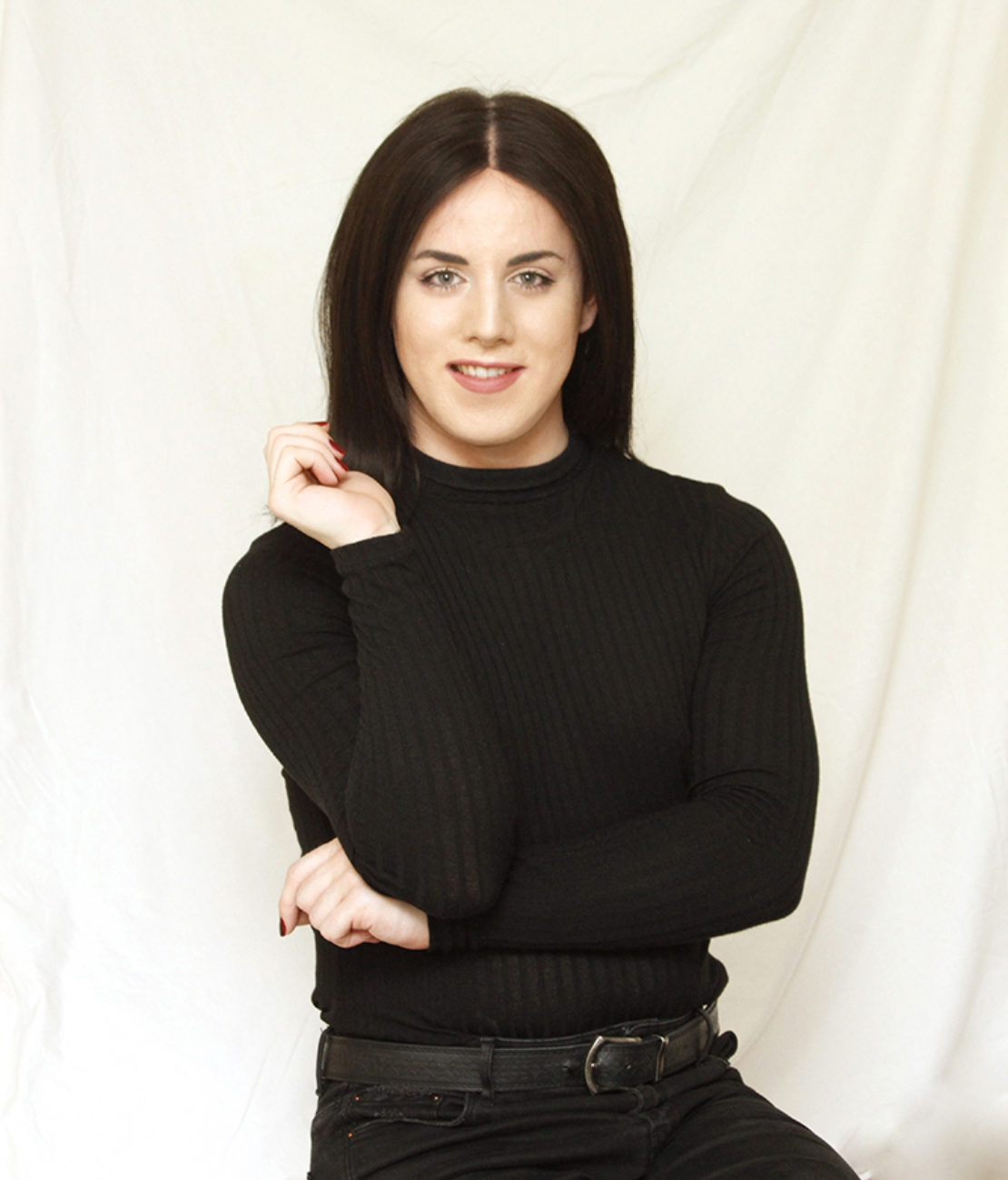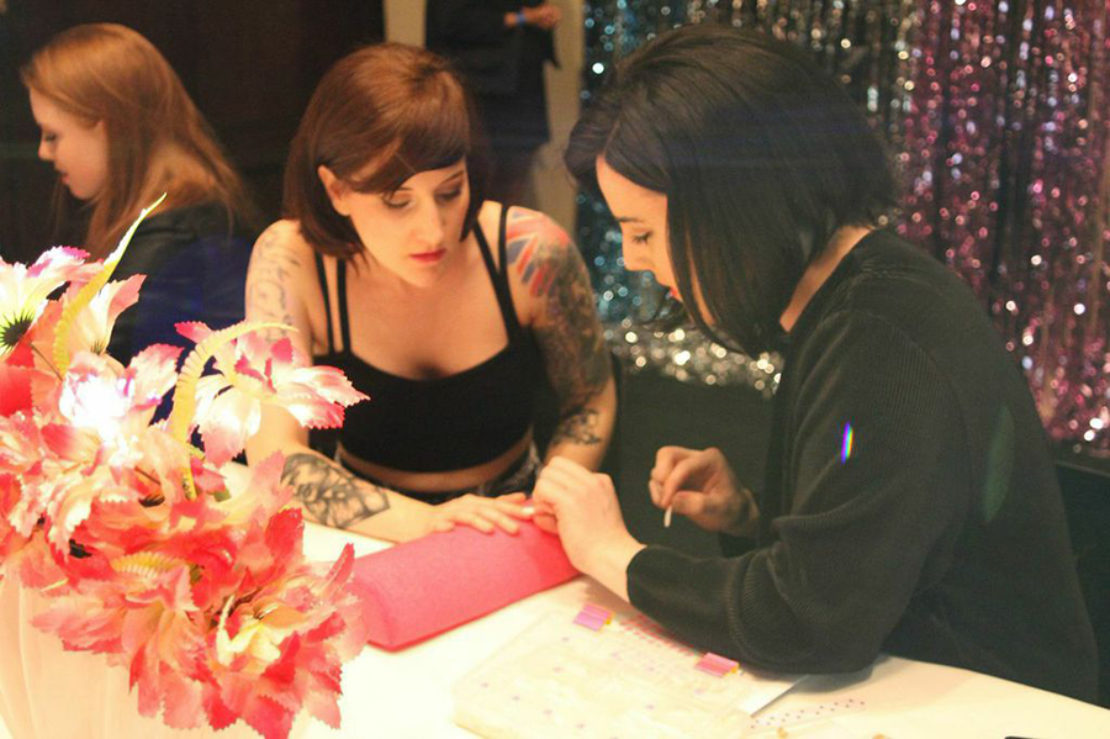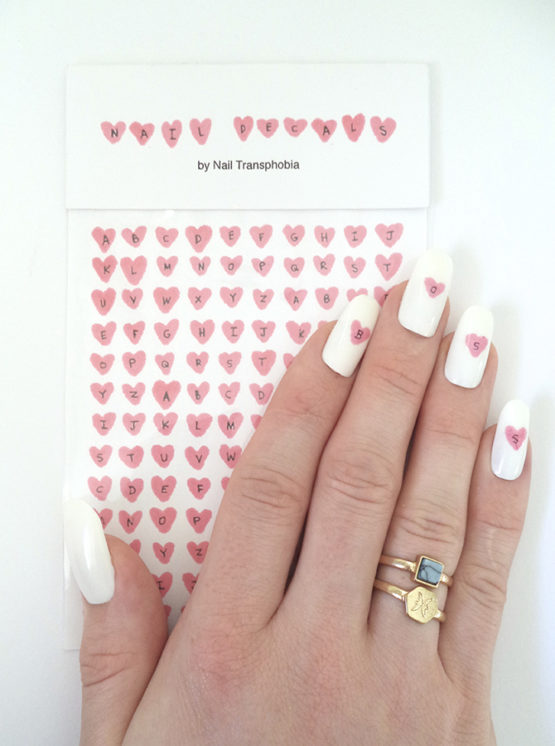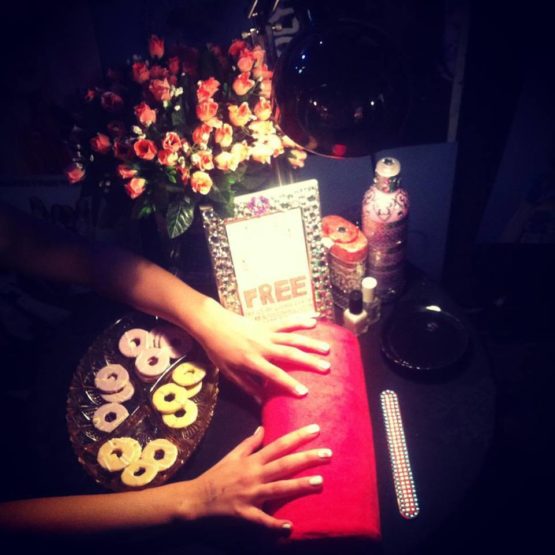How to win hearts and minds with good nails and conversation

Charlie Craggs always knew she was trans, but it was only three years ago, at the age of 21, that she made the decision to transition, to finally be her "authentic self" and live as a woman. It might not have been an easy decision to make – not least because of the number of appointments it took before a GP agreed to refer her to a gender identity clinic – but she knew it was the only option left.
"I was struggling to live as a feminine gay boy, but I was so dead inside that I had to give it a try," Charlie baldly tells me over a cup of frothy hot chocolate in a cafe in Notting Hill. "Luckily, it was meant for me and even though my life got harder, I was much happier in myself. I was sad, but I wasn't depressed any more."
I'm bloody good at talking and I've got a big mouth but standing and shouting is not who I am
Charlie grew up in "a family of tough boys, on a council estate of tough boys" and spent seven deeply traumatic years at an all boys school in Hounslow. As a result, she knows better than most what it feels like to live through a painful adolescence, surrounded by people who could not or would not accept who she was.
"Throughout school I didn't have one friend," she says with a disarming directness and honesty. "No one would talk to me. It was bad."
But those past experiences have only spurred her on to try and bring about change.
Sign up to our newsletter
Since university, Charlie has been endeavouring to undo some of those prejudices with her Nail Transphobia initiative – a pop-up nail salon which offers free manicures to people who have most likely never even had a chat with a trans person before, let alone held their hand.
"I was always passionate about LGBT issues and was an activist at heart, I just never connected with the traditional activism I saw around me," says Charlie. So she decided to try and tackle transphobia through beauty, rather than, say, by joining protests and taking to the streets with placards.
"Protests can be quite aggressive and rightly so, but I wanted to do something that was more gentle, more femme and more fabulous. I'm bloody good at talking and I've got a big mouth but standing and shouting is not who I am. Nails are such a one-on-one thing and you get to touch the person you're with, not only in a physically intimate way, but also on a deeper level. They go away with something more than a manicure: they go away with a different perspective, they go away an ally."
Charlie's one-on-one approach has been criticised by some activists in the trans community, who don't think she needs to put herself out there in such a vulnerable way. But Charlie believes there is room for both tactics. "People switch off at a protest – with a manicure they sit down and ask me questions. It's a dialogue. We don't just chat about trans stuff – we talk about X Factor or Beyoncé. Back when I set it up in 2013, the media's representation of trans people was very negative, and up until a year ago you only ever saw a trans person painted as a joke or a sexualised being or as a murdered prostitute. I want to show that we're just nice, normal people."



Since launching Nail Transphobia, Charlie has taken her salon around the UK, painting nails everywhere from Gay Pride London to the V&A Museum. And as her salon's reputation has grown, so has her profile: Charlie is a regular public speaker and has spoken everywhere from colleges and universities to the Houses of Parliament and television shows. This year, she was named as one the most influential LGBTI people in the UK on the Observer/Nesta New Radicals list.
But even though the conversation surrounding trans rights has grown wider and louder in the past couple of years, and activists such as Charlie are being thrust into the media spotlight, that doesn't mean discrimination and prejudice has miraculously disappeared. In fact, it seems the opposite has happened. In July it was revealed that there has been a 170 per cent increase in transphobic hate crimes in the UK since 2011, with a 58 per cent rise in violent crimes against trans people in the last two years alone.
"There's always a backlash after a progressive period," says Charlie. "The Trump after the Obama. [Increased media representation] opens people's eyes to us and the people who are against us get even more angry."
There has been a 170 per cent increase in transphobic hate crimes in the UK since 2011
Men are the main perpetrators of transphobia – they are more than twice as likely to carry out transphobic abuse than women. Do men come and get a manicure, I ask?
"Good men do. Actually one of my first customers was a straight man and he wasn't even with his girlfriend. Usually they'll come with their girlfriends and maybe they'll get their middle finger done, so they're still subverting the feminine act. But when they're standing with their girlfriends they're listening, and a lot of them don't realise how hard we have it. It is so hard. So, so hard. And they're like, I want to support that. They get woken up a bit."
Of course, the number of hate crimes committed is likely much higher than that stated in the press, with many people – Charlie included – not reporting incidents of transphobic attacks. "The police haven't got a good history of being good to the LGBT community," says Charlie of her decision not to report in the past.
"When I see a policeman, I see a man and a lot of men are homophobic and transphobic. Yeah they're in their uniform, but uniforms and labels don't stop people harbouring their own prejudices."
We don't just chat about trans stuff – we talk about X Factor or Beyoncé
That said, Charlie sees the importance of going to the police. "I feel like they've turned a page slightly and are being more vocal about supporting us. As sisters, we need to report more because the more it's reported, the more it gets talked about and the more action is taken to stop it. Other minority groups are vocal when it comes to being attacked and it's bringing about change."
With rates of violence against trans women at an all-time high, Charlie's next step is to start self-defence classes which she is funding herself so those in need can access them easily. She'll soon be touring the classes along with the salon, while also working on a book and her first range of nail varnish.
2017 looks set to be a busy year. But I sense that the nail salons, and her mission to connect with people, is still the most important thing. "I want to create a space where people can ask problematic things in a safe place," she says. "I encourage people to make mistakes, to ask the awkward question, because that's how you learn."